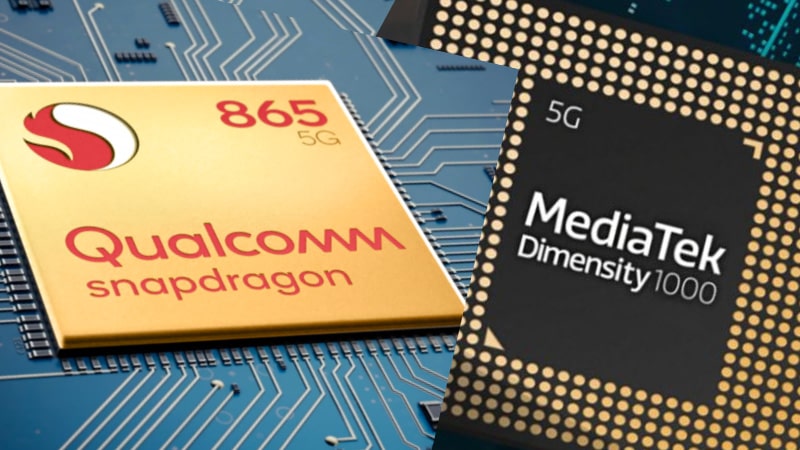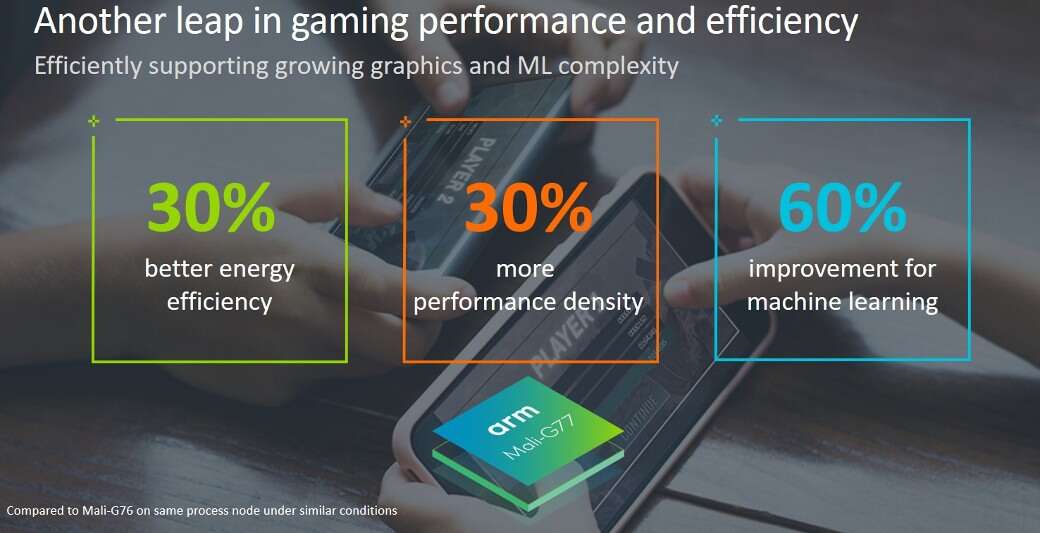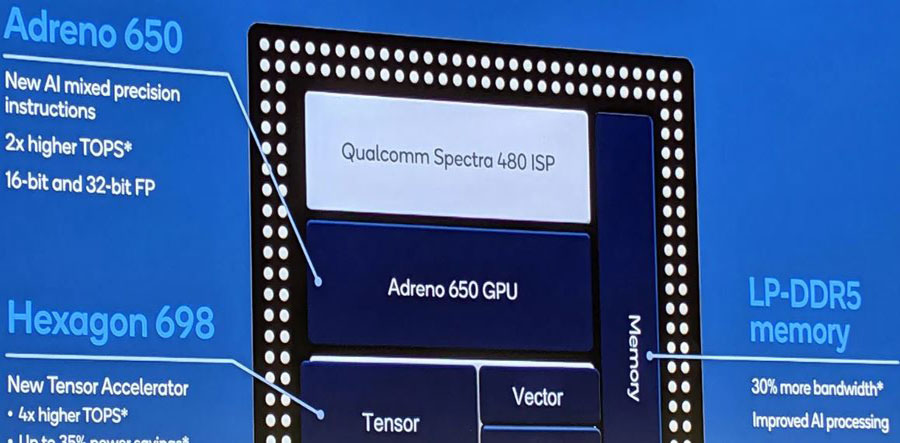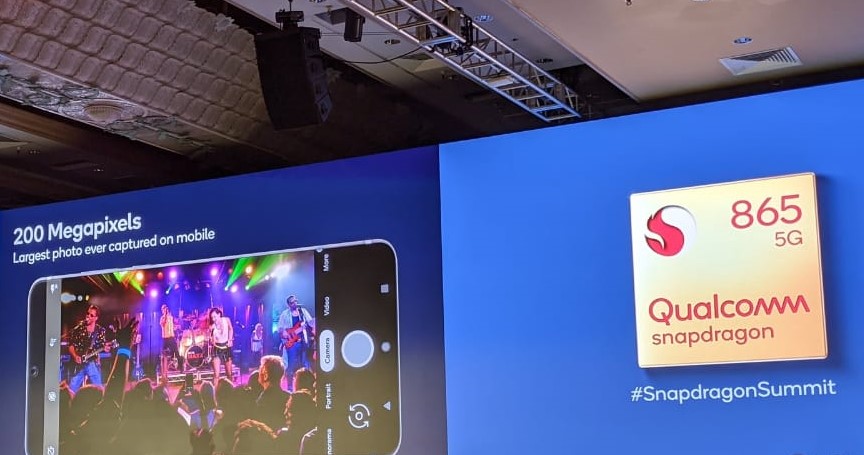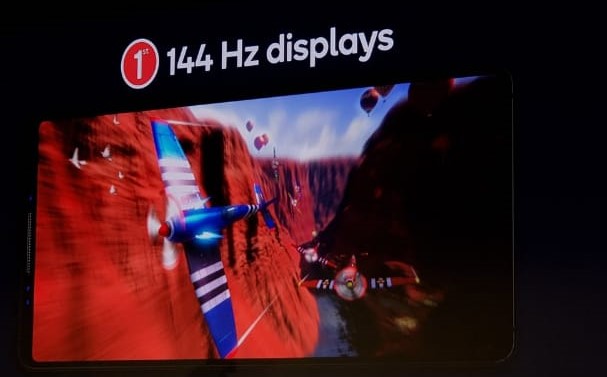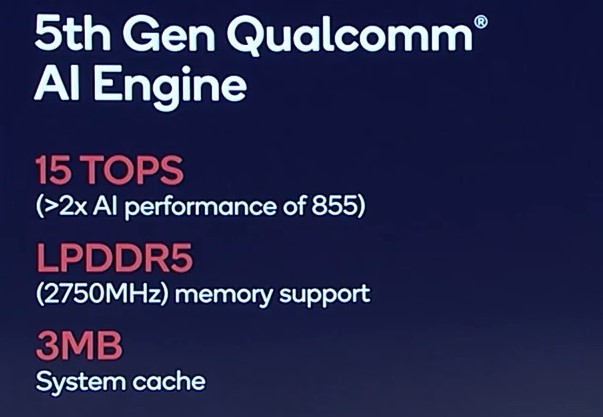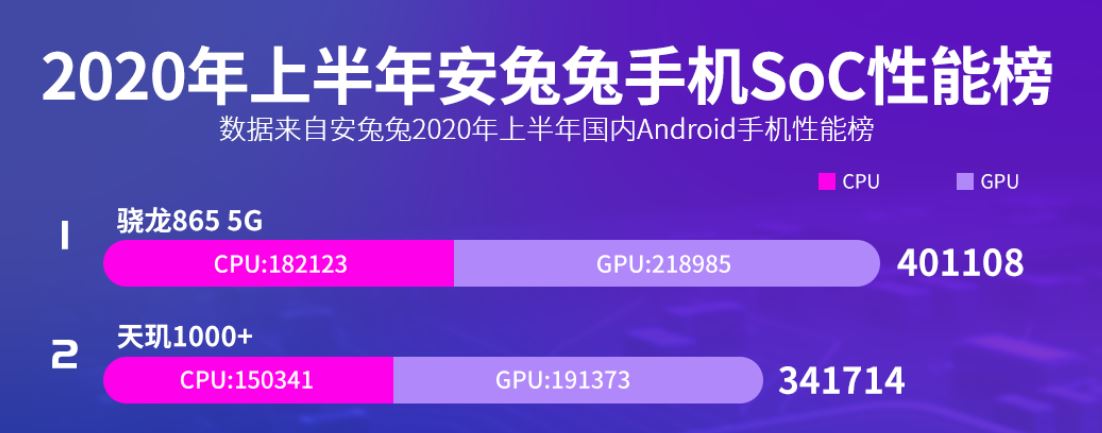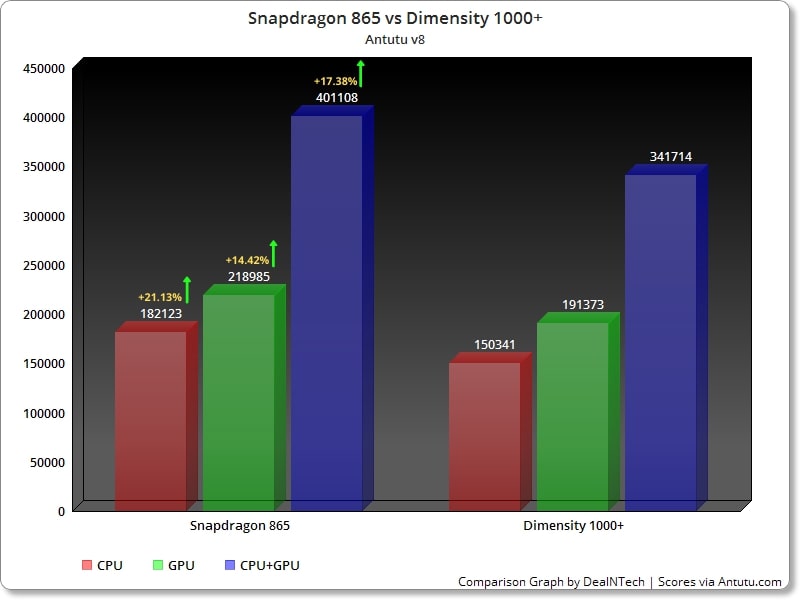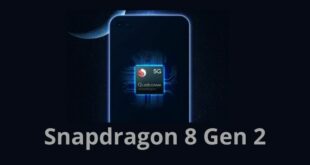In December last year, Qualcomm introduced three new 5G chipsets, which include Snapdragon 865, 765, and 765G. MediaTek also launched two premium chipsets named Dimensity 1000 and 1000+ to compete with Qualcomm’s flagship SoC. Now, as we are seeing smartphones with Snapdragon 865 and Dimensity 1000+ chipsets, questions are arising as to how the top-tier Snapdragon 865 fares against the Dimensity 1000 and 1000+ processors. It should be noted that Dimensity 1000+ is just an improved version of Dimensity 1000 with additional features, such as 144Hz display support.
Snapdragon 865 Vs MediaTek Dimensity 1000 (+) Comparison
On paper, it looks like both SoCs are absolute flagships. Now, the flagship processor for 2020 is out from both Qualcomm and MediaTek. Let’s take a look at them to find out how they fare against each other on paper
CPU & Process
Both these processors are octa-core processors. On the Snapdragon 865, we get one Cortex-A77 (Kryo 585) high-performance core clocked at 2.84 GHz, three Cortex-A77 (Kryo 585) mid-performance cores clocked at 2.4 GHz, and four more Cortex-A55 (Kryo 385) power-efficient cores clocked at 1.8 GHz. While on the MediaTek Dimensity 1000 (+), we get four Arm Cortex-A77 cores clocked at 2.6 GHz and four more power-efficient Arm Cortex-A55 cores clocked at 2.0 GHz.
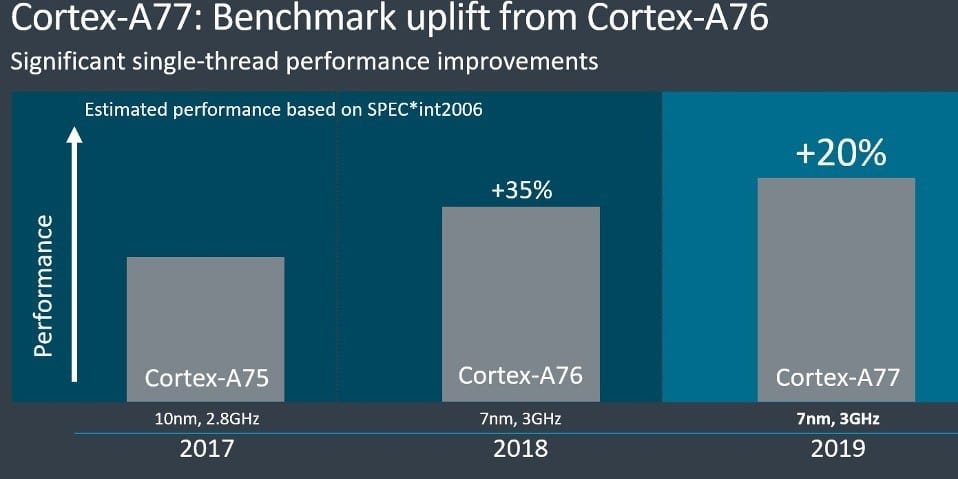
Both of them are built on a 7nm process. But Dimensity 1000 uses TSMC’s first-generation 7nm “N7” process, whereas Snapdragon 865 is manufactured using TSMC 2nd generation 7nm “N7P” process. That means Snapdragon 865 is more power-efficient than Dimensity 1000.
GPU:
The Snapdragon 865 packs an all-new Adreno 650 for graphics-intensive tasks. This greatly improved over last year’s 640 in Snapdragon 855 SoC. The company claims 20% faster graphics rendering and 35% more power efficiency of the Adreno 650 over the 640. On the other hand, on the Dimensity 1000 (+), we see the new Arm Mali-G77 MC9, which is something we have seen before and we know performs equivalent to its competitors. To boost the mobile gaming experience, MediaTek has HyperEngine 2.0, and Qualcomm has Elite Gaming technology.
Memory and Storage:
The Snapdragon 865 has support for LPDDR5 type of RAM, and here, the Dimensity 1000 (+) falls short with support for just LPDDR4X RAM. LPDDR5 is approximately 1.3 times faster than its predecessor LPDDR4X. Again, the 865 in terms of storage, too. The SD 865 supports eMMC 5.1, UFS 2.1, and UFS 3.0, while the Dimensity 1000 (+) pulls the short straw here with just support for eMMC 5.1 and UFS 2.0. There is no support for the latest UFS 3.0 or the even older UFS 2.1.
Optics:
The Spectra 480 ISP on Snapdragon 865 supports a dual 25MP+25MP lens support or a single shooter of 200MP & 64MP(zero shutter lag). On the other hand, the 5-core ISP on Dimensity 1000 Plus supports a dual 32MP+16MP setup or a single 80MP setup. Again, regarding video recording, the 865 can shoot 8K @30fps, 4K @150fps, 1080p @60fps, 720p @480fps slow-motion. The Dimensity 1000 Plus, on the other, is limited to just 4K @60fps, 1080p @120fps, and 720p @240fps.
Display:
In the display department, too, the Snapdragon 865 dominates. It supports a 4K resolution display at 60Hz or a QHD+ display @ 144Hz. This is big compared to Dimensity 1000’s support for Full HD+ displays up to 120Hz and 2K+ up to 90Hz. We also get HDR 10+ display support with the 865, which is definitely missing on the Dimensity 1000 5G chipset. However, Dimensity 1000’s improved version i.e. Dimensity 1000+, supports the highest 144Hz refresh rate. So, it’s a tie if we compare SD865 with Dimensity 1000+.
AI Performance:
Regarding AI on the 865, we have a 5th-generation AI Engine from Qualcomm that provides twice the performance of its predecessor. With the Hexagon Tensor Accelerator in the 5th AI Engine, it pushes 15 trillion operations per second with maximum efficiency. While on the Dimensity 1000 (+), we see a different build altogether with the APU 3.0 Hexa-Core. It has a unique architecture with two big cores, three small, and one tiny core. APU 3.0 offers a 4.5 TOPS, a 2.5X performance uplift over the predecessor APU 2.0.
5G Modem:
To enable 5G connectivity on a smartphone, both processors come with a 5G modem. Snapdragon 865 has an external X55 5G modem that supports mmWave, sub-6 GHz, Dual Mode SA/NSA, TDD and FDD, 4G LTE, 3G, and 2G. It delivers up to 7.5 Gbps download speed over 5G network. On the other hand, MediaTek Dimensity 1000 has an integrated 5G modem that supports Sub-6 GHz, Standalone and Non-Standalone, LTE, 3G, and 2G. It delivers up to 4.7 Gbps download speed over 5G network.
Both of them provide dual 5G SIM technology. This allows users to enable a 5G network on both SIMs.
As Dimensity 1000 (+) comes with a built-in 5G modem in a single chip, it has an advantage over Snapdragon 865. It consumes less power than Snapgraon’s two-chip solutions. It also reduces the overall platform size to embed bigger batteries & a larger camera. This gives advantages to smartphone manufacturers, too.
Specifications That Matter
Here’s the specifications comparison table to determine the differences and similarities between the Snapdragon 865 and Dimensity 1000.
| SoC | Snapdragon 865 | MediaTek Dimensity 1000 |
| Model | SDM865, SM8250 | MT6889 |
| Process | 7nm (TSMC’s N7P) | 7nm (TSMC’s N7) |
| CPU | 1x Kryo 585 (Cortex A77) @ 2.84GHz 3x Kryo 585 (Cortex A77) @ 2.4GHz 4x Kryo 385 (Cortex A55) @ 1.8GHz | 4x Cortex A77 @ 2.6GHz 4x Cortex A55 @ 2.0GHz |
| GPU | Adreno 650 | Mali-G77MP9 |
| Memory | LPDDR5 @ 2750MHz | LPDDR4X @ 2133MHz |
| ISP/Camera | Spectra 480 ISP Single: 200MP Dual: Up to 25MP; ZSL | 5-core ISP Single: 80MP Dual: 32MP + 16MP |
| 5G Modem | Yes, External X55 Modem | Yes, Integrated 5G Sub-6 |
| AI | Hexagon 698 15 TOPs | APU 3.0 4.5 TOPS |
| WiFi | WiFi-6 ready | WiFi-6 ready |
| Display | 4K UHD @ 60Hz, QHD+ @ 144Hz | Max Resolution: 2520 x 1080 (144Hz support with Dimensity 1000+) |
Which one is the better chipset for 2020’s flagship phone?
Both processors are capable of powering 2020’s flagship phones. On paper, looking into the specifications, the Snapdragon 865 is the best in all segments, including CPU, GPU, Camera, AI performance, etc. However, Dimensity 1000 (+) has many advantages, such as an integrated 5G modem.
Recently, Antutu has released benchmark scores of both SoCs. The Qualcomm Snapdragon 865 SoC has been ranked first with an overall Antutu score of 401108 points. On the other hand, the MediaTek Dimensity 1000+ has managed to achieve 341714 points and comes in second place. So, Qualcomm’s 865 chipset is the clear winner.
| SoCs | Snapdragon 865 Benchmark | Dimensity 1000+ Benchmark |
|---|---|---|
| CPU Score | 182123 Points 21.13% Increase | 150341 Points |
| GPU Score | 218985 Points 14.42% Increase | 191373 Points |
| Total Score | 401108 Points 17.38% Increase | 341714 Points |
Based on Antutu Scores, we have created graphs to compare their performance increase/decrease in both the CPU and GPU departments. With Snapdragon 865, we get 21.13% faster CPU performance and 14.42% faster graphics than the Dimensity 1000+.
